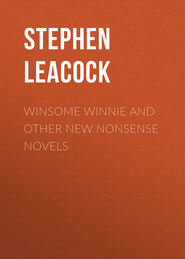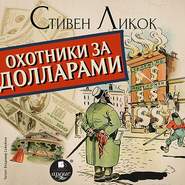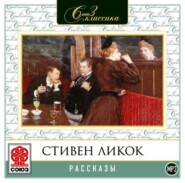По всем вопросам обращайтесь на: info@litportal.ru
(©) 2003-2025.
✖
The Hohenzollerns in America
Автор
Год написания книги
2019
Настройки чтения
Размер шрифта
Высота строк
Поля
"In favour of it! We were all against it."
"But the Kaiser," I protested.
"The Kaiser, my poor master! How he worked to prevent the war! Day and night; even before anybody else had heard of it. 'Boob,' he said to me one day with tears in his eyes, 'this war must be stopped.' 'Which war, your Serenity,' I asked. 'The war that is coming next month,' he answered, 'I look to you, Count Boobenstein,' he continued, 'to bear witness that I am doing my utmost to stop it a month before the English Government has heard of it.'"
While we were thus speaking our taxi had taken us out of the roar and hubbub of the main thoroughfare into the quiet of a side street. It now drew up at the door of an unpretentious dwelling in the window of which I observed a large printed card with the legend
REVEREND MR. TIBBITS Private Tuition, English, Navigation, and other Branches
We entered and were shown by a servant into a little front room where a venerable looking gentleman, evidently a Lutheran minister, was seated in a corner at a writing table. He turned on our entering and at the sight of the uniform which I wore jumped to his feet with a vigorous and unexpected oath.
"It is all right, Admiral," said Count Von Boobenstein.
"My friend is not really a sailor."
"Ah!" said the other. "You must excuse me. The sight of that uniform always gives me the jumps."
He came forward to shake hands and as the light fell upon him I recognized the grand old seaman, perhaps the greatest sailor that Germany has ever produced or ever will, Admiral Von Tirpitz.
"My dear Admiral!" I said, warmly. "I thought you were out of the country. Our papers said that you had gone to Switzerland for a rest."
"No," said the Admiral. "I regret to say that I find it impossible to get away."
"Your Allied press," interjected the count, "has greatly maligned our German patriots by reporting that they have left the country. Where better could they trust themselves than in the bosom of their own people? You noticed the cabman of our taxi? He was the former chancellor Von Hertling. You saw that stout woman with the apple cart at the street corner? Frau Bertha Krupp Von Bohlen. All are here, helping to make the new Germany. But come, Admiral, our visitor here is much interested in our plans for the restoration of the Fatherland. I thought that you might care to show him your designs for the new German Navy."
"A new navy!" I exclaimed, while my voice showed the astonishment and admiration that I felt. Here was this gallant old seaman, having just lost an entire navy, setting vigorously to work to make another. "But how can Germany possibly find the money in her present state for the building of new ships?"
"There are not going to be any ships," said the great admiral. "That was our chief mistake in the past in insisting on having ships in the navy. Ships, as the war has shown us, are quite unnecessary to the German plan; they are not part of what I may call the German idea. The new navy will be built inland and elevated on piles and will consist—"
But at this moment a great noise of shouting and sudden tumult could be heard as if from the street.
"Some one is coming," said the admiral hastily. "Reach me my Bible."
"No, no," said the count, seizing me by the arm. "The sound comes from the Great Square. There is trouble. We must hasten back at once."
He dragged me from the house.
We perceived at once, as soon as we came into the main street again, from the excited demeanour of the crowd and from the anxious faces of people running to and fro that something of great moment must be happening.
Everybody was asking of the passer-by, "What is loose? What is it?" Ramshack taxis, similar to the one in which we had driven, forced their way as best they could through the crowded thoroughfare, moving evidently in the direction of the government buildings.
"Hurry, hurry!" said Von Boobenstein, clutching me by the arm, "or we shall be too late. It is as I feared."
"What is it?" I said; "what's the matter?"
"Fool that I was," said the count, "to leave the building.
I should have known. And in this costume I am helpless."
We made our way as best we could through the crowd of people, who all seemed moving in the same direction, the count, evidently a prey to the gravest anxiety, talking as if to himself and imprecating his own carelessness.
We turned the corner of a street and reached the edge of the great square. It was filled with a vast concourse of people. At the very moment in which we reached it a great burst of cheering rose from the crowd. We could see over the heads of the people that a man had appeared on the balcony of the Government Building, holding a paper in his hand. His appearance was evidently a signal for the outburst of cheers, accompanied by the waving of handkerchiefs. The man raised his hand in a gesture of authority. German training is deep. Silence fell instantly upon the assembled populace. We had time in the momentary pause to examine, as closely as the distance permitted, the figure upon the balcony. The man was dressed in the blue overall suit of a workingman. He was bare-headed. His features, so far as we could tell, were those of a man well up in years, but his frame was rugged and powerful. Then he began to speak.
"Friends and comrades!" he called out in a great voice that resounded through the square. "I have to announce that a New Revolution has been completed."
A wild cheer woke from the people.
"The Bolsheviks' Republic is overthrown. The Bolsheviks are aristocrats. Let them die."
"Thank Heaven for this costume!" I heard Count Boobenstein murmur at my side. Then he seized his pea-green hat and waved it in the air, shouting: "Down with the Bolsheviks!"
All about us the cry was taken up.
One saw everywhere in the crowd men pulling off their sheepskin coats and tramping them under foot with the shout, "Down with Bolshevism!" To my surprise I observed that most of the men had on blue overalls beneath their Russian costumes. In a few moments the crowd seemed transformed into a vast mass of mechanics.
The speaker raised his hand again. "We have not yet decided what the new Government will be"—
A great cheer from the people.
"Nor do we propose to state who will be the leaders of it."
Renewed cheers.
"But this much we can say. It is to be a free, universal,
Pan-German Government of love."
Cheers.
"Meantime, be warned. Whoever speaks against it will be shot: anybody who dares to lift a finger will be hanged. A proclamation of Brotherhood will be posted all over the city. If anybody dares to touch it, or to discuss it, or to look at or to be seen reading it, he will be hanged to a lamp post."
Loud applause greeted this part of the speech while the faces of the people, to my great astonishment, seemed filled with genuine relief and beamed with unmistakable enthusiasm.
"And now," continued the speaker, "I command you, you dogs, to disperse quietly and go home. Move quickly, swine that you are, or we shall open fire upon you with machine guns."
With a last outburst of cheering the crowd broke and dispersed, like a vast theatre audience. On all sides were expressions of joy and satisfaction. "Excellent, wunderschoen!" "He calls us dogs! That's splendid. Swine! Did you hear him say 'Swine'? This is true German Government again at last."
Then just for a moment the burly figure reappeared on the balcony.
"A last word!" he called to the departing crowd. "I omitted to say that all but one of the leaders of the late government are already caught. As soon as we can lay our thumb on the Chief Executive rest assured that he will be hanged."
"Hurrah!" shouted Boobenstein, waving his hat in the air. Then in a whisper to me: "Let us go," he said, "while the going is still good."
We hastened as quickly and unobtrusively as we could through the dispersing multitude, turned into a side street, and on a sign from the count entered a small cabaret or drinking shop, newly named, as its sign showed, THE GLORY OF THE BRITISH COLONIES CAFE.
The count with a deep sigh of relief ordered wine.
"You recognized him, of course?" he said.














